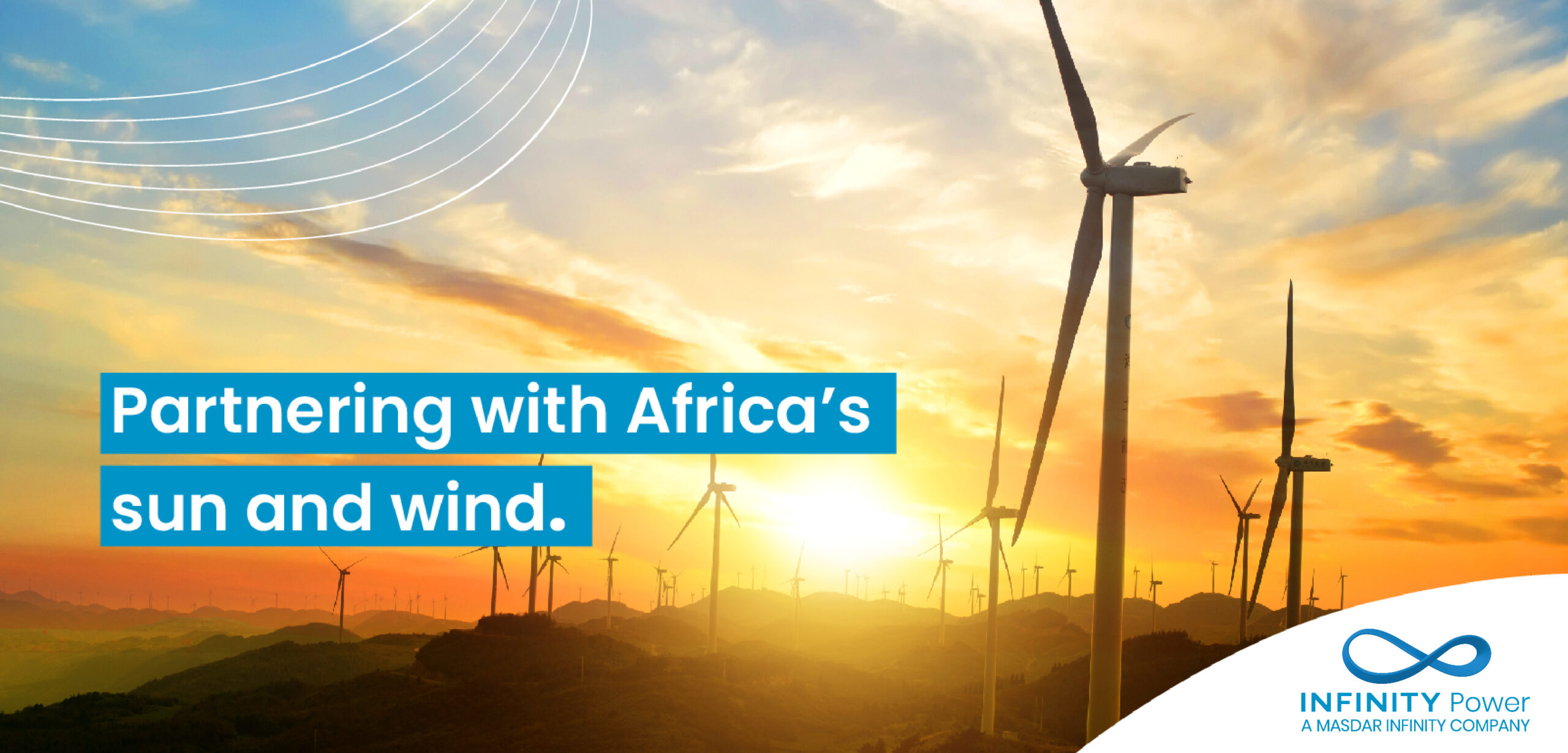- IFC extends USD 100 mn loan to Morocco’s OCP to boost green fertilizer production. (Debt Watch)
- KSA’s Saudi Investment Recycling Company establishes a JV for organic waste management. (Waste Management)
- KSA’s Public Investment Fund launches a new EV-focused investment company. (Investment Watch)
- Is the UAE eyeing a solar energy project in Georgia? (Solar)
- Egypt will reportedly build a 1 GW interconnection project with the Congo. (What We’re Tracking Today)
- The UAE’s Sheraa sets up a fund to invest in greentech startups. (Also on Our Radar)
- El Niño and climate change are threatening global cocoa supplies. (Climate in the News)
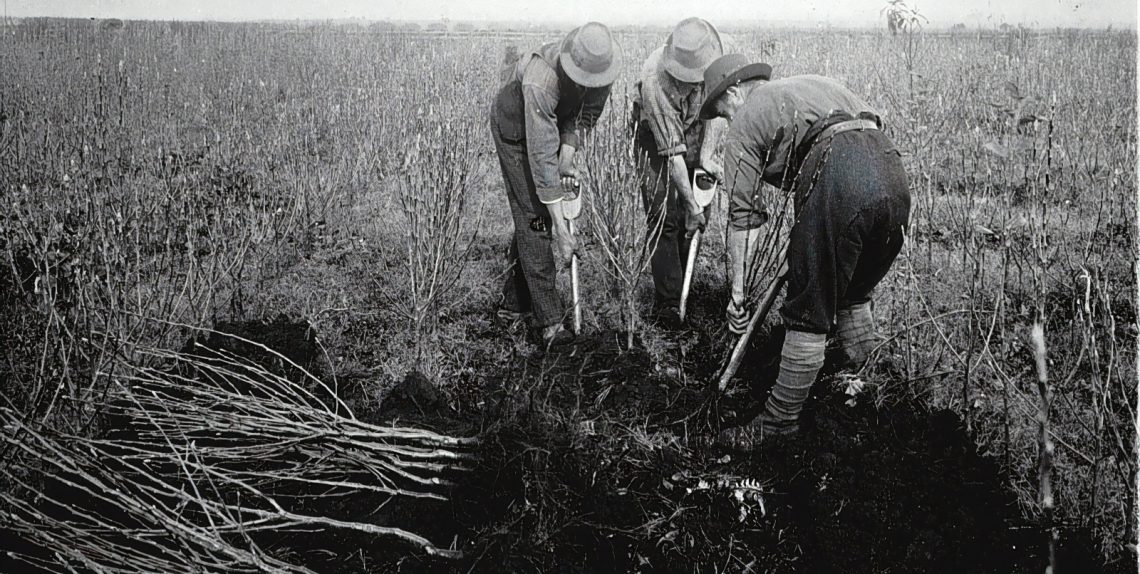
Thursday, 12 October 2023
IFC extends USD 100 mn loan to Morocco’s OCP to boost green fertilizer production
TL;DR
WHAT WE’RE TRACKING TODAY
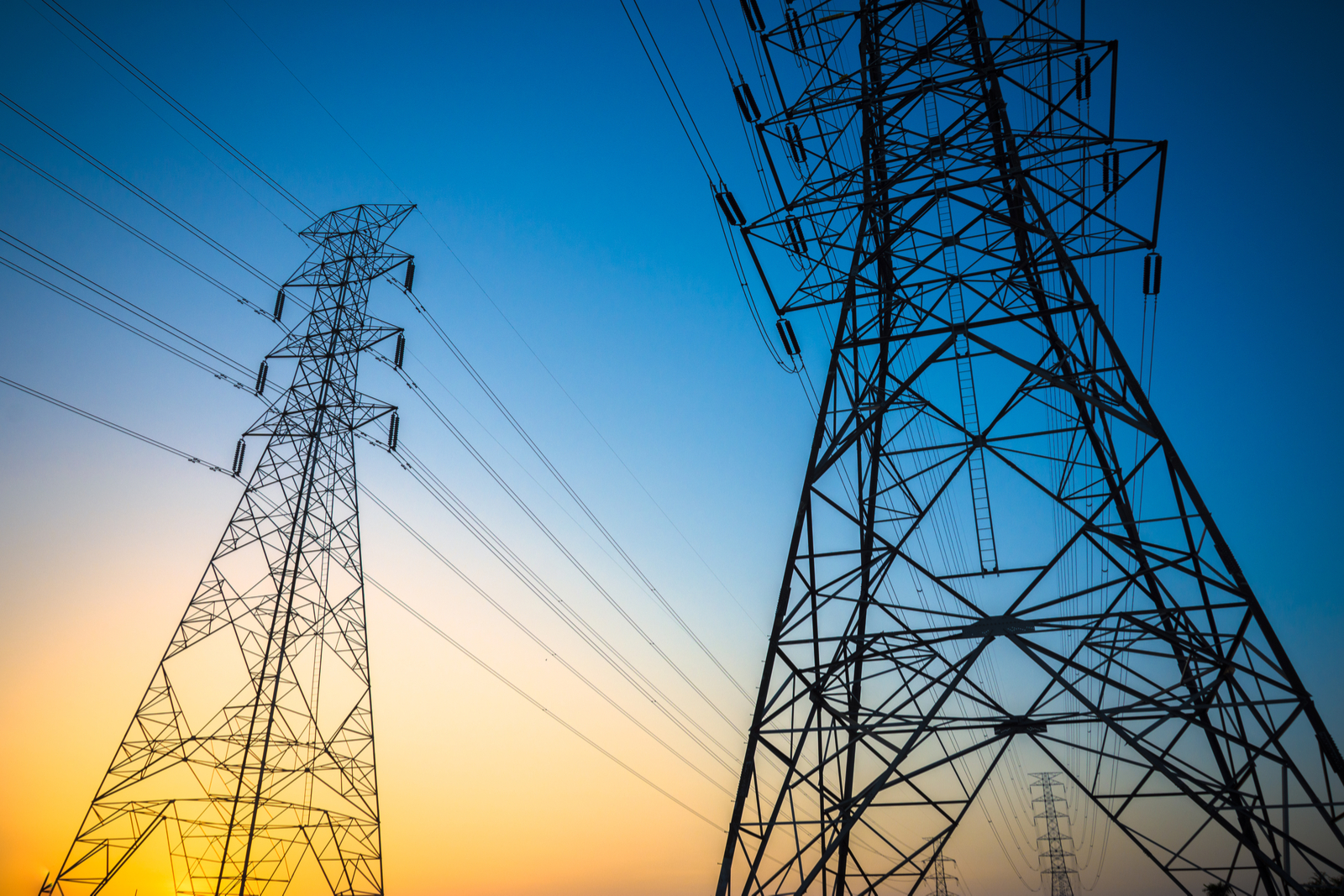
Good morning, ladies and gents. It’s a quiet morning on the climate news front, but there are a few stories emerging from the region worth noting.
THE BIG CLIMATE STORY- The International Finance Corporation will extend a USD 100 mn loan to Moroccan state-owned fertilizer and phosphate giant OCP Group to boost the company’s solar-powered fertilizer production operations.
^^ We have the details on this story and more in the news well, below.
THE BIG CLIMATE STORY OUTSIDE THE REGION- There’s no single climate story dominating headlines this morning, but World Bank chief Ajay Banga has called for a removal of some subsidies which cause harm to the environment, Reuters reports. He urged lowering the USD 1.25 tn poured annually on subsidies for agriculture, fuel and fisheries which would have USD 5 to USD 6 tn of environmental impact. "I'm not saying to get rid of all of those. I consider some of those subsidies mission-critical to the social contract with the government and its citizens. But I don't believe that USD 1.25 tn qualifies," he said on the sidelines of the annual meetings of the IMF and the World Bank in Morocco.
WATCH THIS SPACE #1- Egypt has agreed with the Democratic Republic of Congo to build up a 1 GW interconnection project linking Aswan to Inga, according to a document seen by Enterprise Climate. The planned project — which will have a voltage of 500 kV — is set to be built over three phases, with the first stage set for next year, the document showed. It is part of a USD 3 bn African Continental Master Plan (CMP) to create one grid for the continent.
And that’s not all: Egypt has reached an agreement with Eritrea to set up two solar plants at a total cost of USD 10.4 mn, the document showed. It did not provide details on the two facilities’ capacities or timelines.
IN OTHER EGYPT NEWS– Egypt’s state-owned El Nasr Automotive is currently in talks with three foreign firms and a local firm to manufacture a traditional vehicle and an electric vehicle in the coming period, Youm 7 reported, citing statements by El Nasr’s Chairman Khaled Shedid. The negotiations include Chinese Yunlong, which El Nasr is currently in talks with for the manufacture of three electric vehicles, Shedid said.
The country’s EV ambitions are high: While Egypt’s EV industry is still nascent, two auto firms and distributors — Misr Helwan Automotive and Abou Ghaly Motors — introduced EVs to the country’s car market this year. Egypt is supporting Abou Ghaly and other private sector players with incentives to get a homegrown EV industry off the ground, with the country’s environment minister expecting the first locally-assembled EVs to roll off production lines in 2024. India’s Hinduja Group is expected to sign a final agreement with Egypt to support local EV manufacturing in the country by the end of 4Q 2023, an informed source at Egypt’s Trade and Industry Ministry’s Trade Representation told Enterprise Climate in August. Earlier in May, Hinduja’s commercial vehicle maker Ashok Leyland expressed interest in cooperating with El Nasr to manufacture commercial EVs in Egypt.
WATCH THIS SPACE #2- Neom’s first wind turbines have arrived: The first batch of wind turbines have arrived in Neom’s port with dozens more expected by the year’s end, Neom Green Hydrogen Company CEO David Edmondson told AFP on Tuesday. Some 30 turbines are set to be delivered to KSA’s Neom by the end of the year along with the ambitious project’s first solar panels.
Looking ahead: The USD 8.4 bn green hydrogen plant at Neom is set to reach full capacity by the end of 2026, with all of its production set for export, he said. The plant, which achieved financial close earlier this year, will have a 1.2 mn ton annual production capacity once operational.
DATA POINT- Immediate methane emissions cuts would avert mns of premature deaths: Immediate methane cuts would prevent c. 1 mn premature deaths due to ozone exposure by 2050, the International Energy Agency (IEA) said in a report (pdf). The cuts would also prevent 90 mn tons of crop losses, c. 85 bn hours of labor lost due to extreme heat, and help generate c. USD 260 bn in direct economic benefits through 2050. Heavily polluting fossil fuel is likely to hold “the largest potential for rapid and low-cost reductions in methane emissions,” the report said. Over 80 mn tons of annual methane emissions from fossil fuels can be prevented by 2030 using existing technologies at a low or negative cost.
|
***
YOU’RE READING ENTERPRISE CLIMATE, the essential regional publication for senior execs who care about the world’s most important industry. Enterprise Climate covers everything from finance and tech to regulation, products and policy across the Middle East and North Africa. In a nod to the growing geographical ambitions of companies in our corner of the world, we also include an overview of the big trends and data points in nearby countries, including Africa and southern Europe.
Enterprise Climate is published by 5am CLT / 5am Riyadh / 6am UAE Monday through Thursday by Enterprise, the folks who bring you Enterprise Egypt, your essential 6am and 3pm read on business, finance, policy and economy in Egypt and emerging markets.
EXPLORE MORE OF ENTERPRISE ON THE WEB — tap or click here to read EnterpriseAM, EnterprisePM, and The Weekend Edition on our powerful new website packed with reader-friendly features.
Subscribe to Enterprise Climate here or reach out to us on climate@enterprisemea.com with comments, suggestions and story tips.
***
CIRCLE YOUR CALENDAR-
The UAE will host the UNCTAD World Investment Forum from Monday, 16 October to Friday, 20 October in Abu Dhabi. This year’s theme focuses on sustainable investments, with a diverse range of climate financing sessions on promoting investments in the blue economy, agrifood systems, sustainable infrastructure, carbon markets, the circular economy, strategic minerals for decarbonization, and sustainable tourism. Some sessions will tackle reform of financial institutions needed to reach net zero, such as a session on integrating nature-related risk into capital markets and financing an equitable nature economy. Public sector investments and stock exchange action on climate disclosures will also be discussed.
Oman will host the Duqm Economic Forum from Monday, 16 October to Tuesday, 17 October in Duqm. The two-day event — organized by the Public Authority for Special Economic Zones and FreeZones — will showcase green investment windows and possible partnerships at the Special Economic Zone at Duqm.
Egypt will host the fourth meeting of the COP27 Transitional Committee from Tuesday, 17 October to Friday, 20 October in Aswan. The meeting aims to establish institutional arrangements, modalities, governance structures, and terms of reference for the landmark Loss and Damage Fund while expanding sources for climate funding under the program.
Check out our full calendar on the web for a comprehensive listing of upcoming news events, national holidays and news triggers.
DEBT WATCH
IFC extends USD 100 mn loan to Morocco’s OCP to boost green fertilizer production
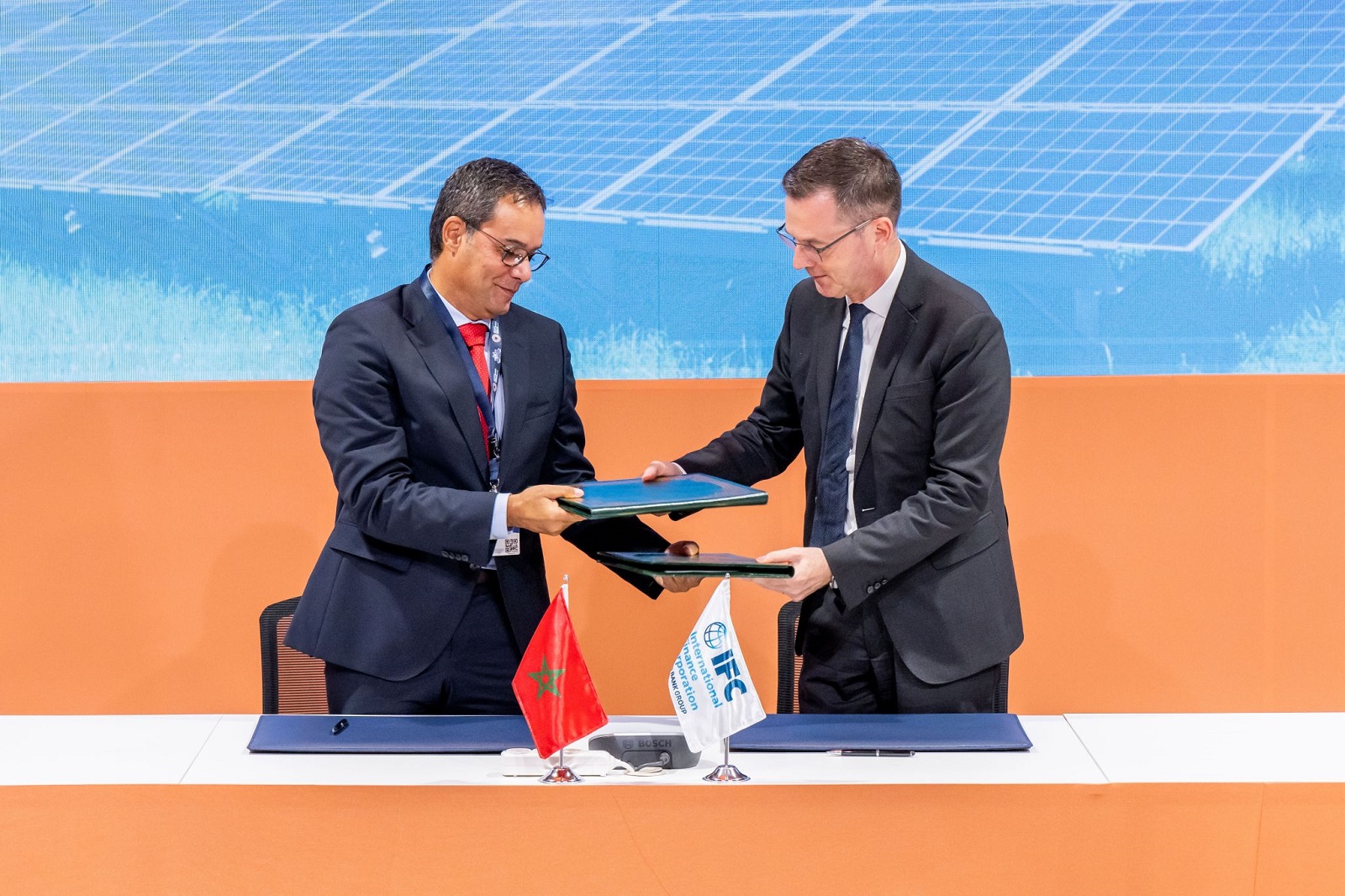
Morocco’s OCP secures a green loan from the IFC: The International Finance Corporation (IFC) will extend a USD 100 mn loan to Moroccan state-owned fertilizer and phosphate giant OCP Group to boost the company’s solar-powered fertilizer production operations, according to a statement.
Where is the money going: The loan will help finance two solar energy farms with a combined 400 MW peak power capacity and a total investment ticket of USD 360 mn in the Moroccan towns of Benguerir and Khouribga, which are home to Morocco’s largest phosphate reserves. The solar projects will be supplemented with a BESS facility with a 100 MWh peak storage capacity. OCP aims to use the clean energy it produces from the PV plants to greenify its phosphate mining operations in the two locales.
Why is this important? Phosphate provides a quarter of the nutrients needed for plant growth and development, but mining the chemical elements generates an estimated 1.8 kg of CO2 for each kilo produced.
Not the first time: Back in April, the IFC extended a USD 100 mn credit line to the Moroccan company to finance the first phase of OCP’s 1.2 GW solar program, which will involve development of four PV plants, also in Benguerir and Khouribga, with a combined 202 MW power capacity.
And that’s not all: The IFC and OCP launched a USD 800 mn agricultural financing platform to mobilize blended capital in a bid to boost food security across Africa, according to a separate statement. The platform aims to strengthen 30 food value chains across the continent through 60 individual agri-financing operations, upskilling farmers and food producers on building resilient food production and distribution networks with a focus on growing crop types compatible with Africa’s climate conditions. The platform has inked a partnership agreement with the Bank of Africa to improve access to fertilizers for African farmers and agri-processors, and has designed projects to support cashew and rice value chains in a number of countries across the continent.
IN OTHER IFC NEWS- More support for sustainable farming in Morocco: The IFC, Morocco’s Banque Centrale Populaire (BCP), and Moroccan agritech company CMGP will establish a USD 36 mn risk sharing facility (RSF) through which BCP will provide green loans the kingdom’s agricultural sector, according to a statement. The RSF will lend support to some 30k farmers and SMEs in the country by 2027 to boost capacities for solar-powered irrigation, development of sustainable water management systems, and micro irrigation farming in Morocco.
WASTE MANAGEMENT
KSA’s Saudi Investment Recycling Company establishes a JV for organic waste management
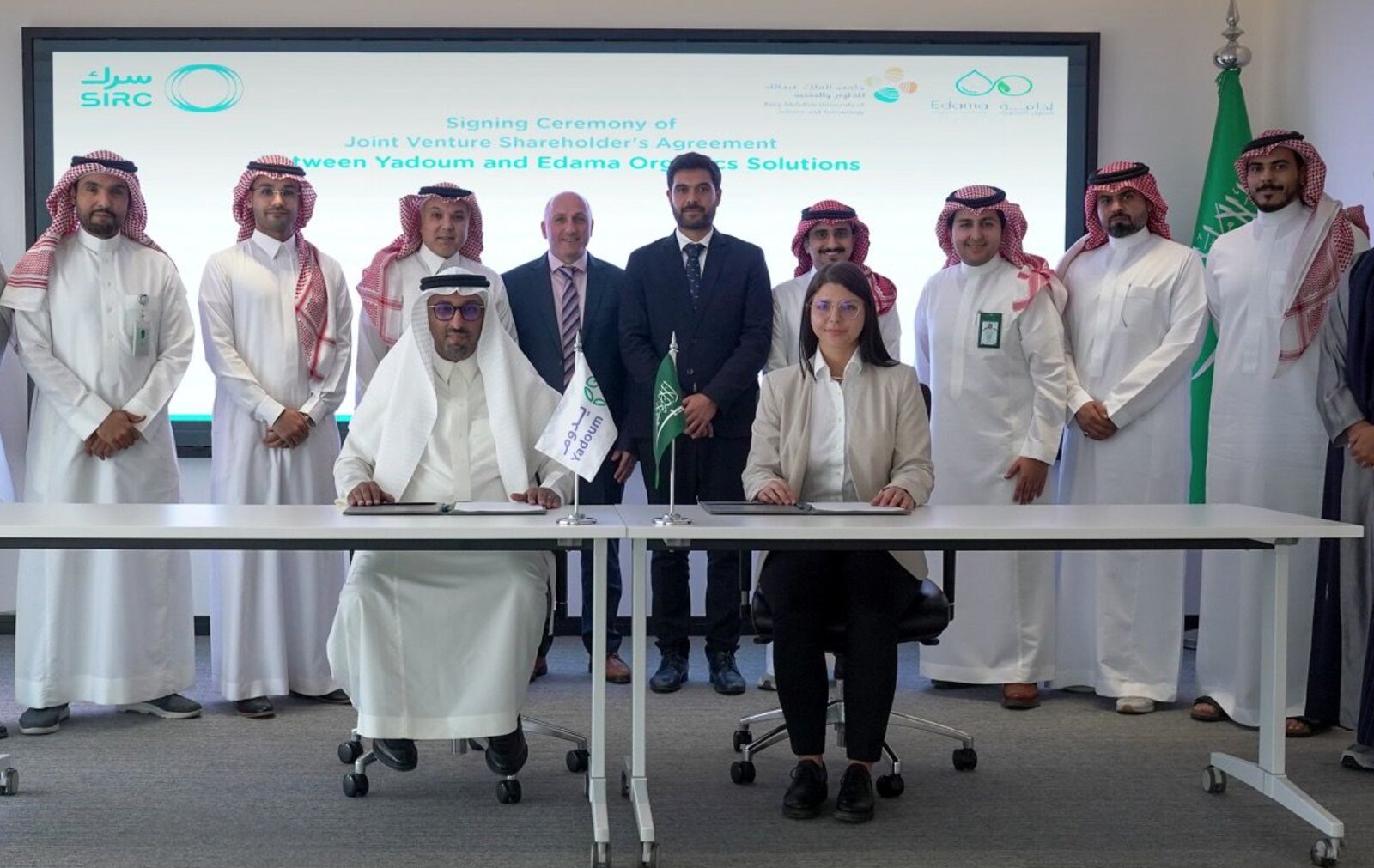
KSA’s SIRC forms a JV for organic waste recycling: The Saudi Investment Recycling Company (SIRC) is forming a JV with KSA’s Edama Organic Solutions to explore sustainable solutions for organic waste management, according to a statement. The venture aims to convert over 1 mn tons of organic waste into soil amendments — materials mixed into the upper layer of soil to improve plant growth — each year, improving soil fertility while minimizing environmental pollution, carbon emissions, and reliance on imported amendments.
Why organic waste recycling? The soil mixes produced by the JV will enhance agricultural productivity, leading to increased local food security and reduced water irrigation requirements, as well as facilitating land reclamation and tree planting projects, according to the Saudi Press Agency.
KSA is not the only one looking into investments in the organic waste sector: UAE-based Zero Carbon signed an MoU in September with Egypt’s Green Planet for a pilot project focused on the treatment and transformation of organic waste into income-generating products.
SIRC has been on a roll: Saudi air carrier Flynas signed a collaboration agreement with the SIRC last August to develop tech to repurpose the airline’s refuse, including e-waste such as battery cells and biowaste like spent oils. SIRC also signed an agreement with Saudi Arabia’s state-owned National Agricultural Development Company (Nadec) in February to jointly recycle 400k tons of biowaste annually with the goal of converting the refuse into organic fertilizers.
About SIRC: SIRC joined the European Petrochemical Association in August under a strategic plan to expand its recycling business and bolster cooperation with global counterparts. The recycling firm also has a 60% share in Masab Plastic Factory Company. Earlier this year, the company landed second on the Forbes list of the most innovative firms in environmental sustainability.
About Edama: Edama was established in 2017 as a spin-off company from King Abdullah University of Science and Technology (KAUST), according to its website. It is currently the leading company developing organic waste recycling solutions designed specifically for desert environments. Edama’s agricultural products improve the water holding capacity and fertility of sandy soil and supply the booming, water-efficient hydroponics and indoor farming sectors, increasing desert food production and reducing water consumption, the website explains.
INVESTMENT WATCH
PIF solidifies backing for KSA’s EV sector with new investment company Tasaru Mobility Investments
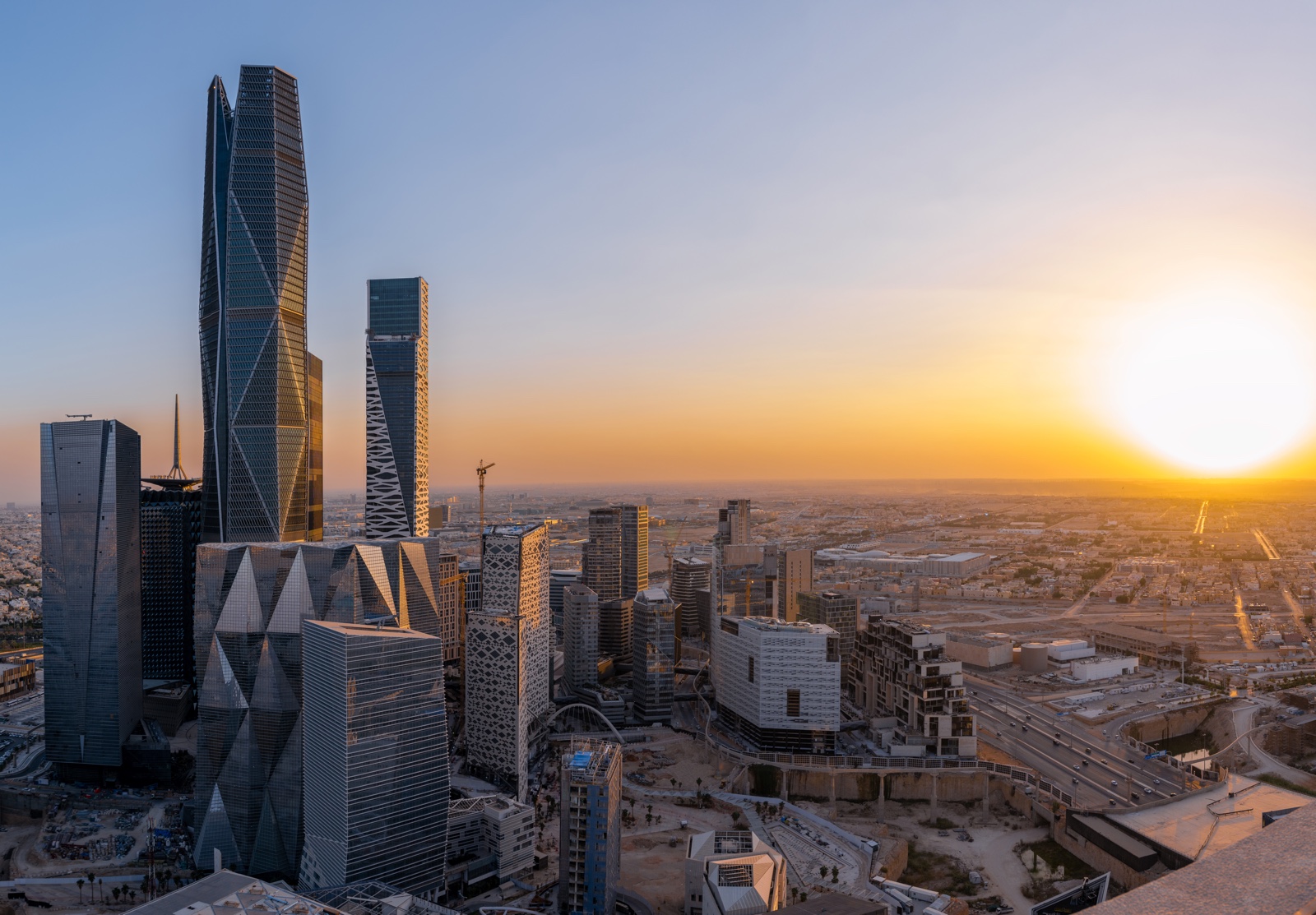
PIF establishes new investment company focused on EVs: Saudi Arabia’s sovereign wealth fund the Public Investment Fund (PIF) has launched a new investment company, Tasaru Mobility Investments, focused on strengthening the local supply chain for electric and autonomous vehicles, according to a statement. The company will partner with both local and global private sector companies to support the sector’s growth and long-term returns through the localization of manufacturing, increasing the adoption of the latest technologies, supporting research and development, and pursuing sustainable investments in the sector, the statement notes.
Already making inroads in the EV sector: Tasaru is developing an automotive logistics hub in King Abdullah Economic City (KAEC) through a newly established JV with Zamil Group Real Estate Company, Abdullah Ibrahim Alkhorayef Sons Company, and Dar Al-Himmah Projects Company. The JV — of which Tasaru is the majority shareholder — aims to supply the aftermarket parts industry through the hub, in line with KAEC’s ambition to become an automotive manufacturing and logistics hub.
Who’s running the new company? Former senior manager at Porsche AG and Volkswagen Group Michael Müller has been appointed as the CEO Tasaru, bringing more than 25 years of experience in the automotive industry, including heading up both brands in Saudi Arabia, and as well as Porsche in Central and Eastern Europe.
REMEMBER- Earlier this week, PIF and the Saudi Electricity Company (SEC) launched the Electric Vehicle Infrastructure Company to expand fast-charging infrastructure across the kingdom. PIF has also made significant investments in EV manufacturing, including establishing Saudi Arabia’s first national EV brand Ceer in partnership with Foxconn, as well as investing in US-based Lucid Motors. In September, Lucid announced that it opened its first international EV plant in Saudi Arabia’s KAEC with plans to eventually produce up to 155k vehicles per year.
SOLAR
Is the UAE eyeing a solar energy project in Georgia?
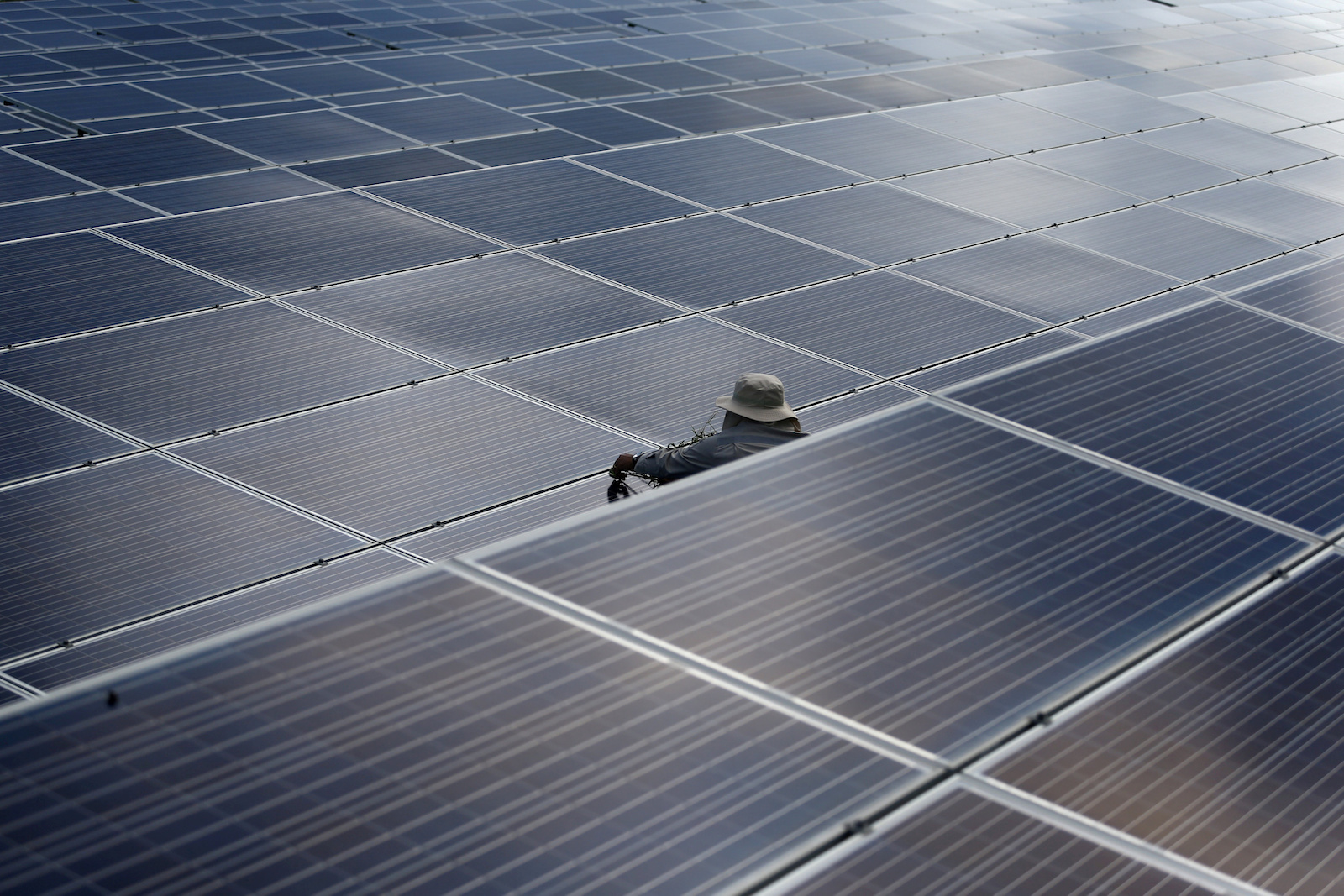
A proposed pilot project for a solar farm in Georgia is reportedly in the works with the UAE, Khaleej Times reports, citing statements by Georgia's Vice PM and Economy and Sustainable Development Minister Levan Davitashvili. “We expect significant potential investments from the UAE into Georgia. For example, currently, we are working on renewable energy projects. There is a pilot project for a solar farm in Georgia. Hopefully, we will sign a joint venture agreement within the next month and move to the implementation phase,” he said, without disclosing details on the planned facility.
A UAE-Georgia CEPA is going into implementation early next year: A Comprehensive Economic Partnership Agreement (CEPA) signed between the UAE and Georgia will be effective in the first quarter of next year, according to officials. It comes under a bid to double bilateral non-oil trade to USD 1.5 bn per year during the next five years.
It’s a CEPA bonanza: UAE State Minister for Foreign Trade Thani bin Ahmed Al Zeyoudi said his country is working on finalizing CEPAs with six additional countries by the end of this year. “We are about to conclude talks with South Korea, and Thailand is almost at the last stages. These agreements will follow those with Costa Rica, Chile, Colombia, and Vietnam. We are also very close to concluding talks with Ukraine,” Al Zeyoudi said. The UAE has rolled out several CEPAs with Turkey, Indonesia, Israel, and India in recent months.
ALSO ON OUR RADAR
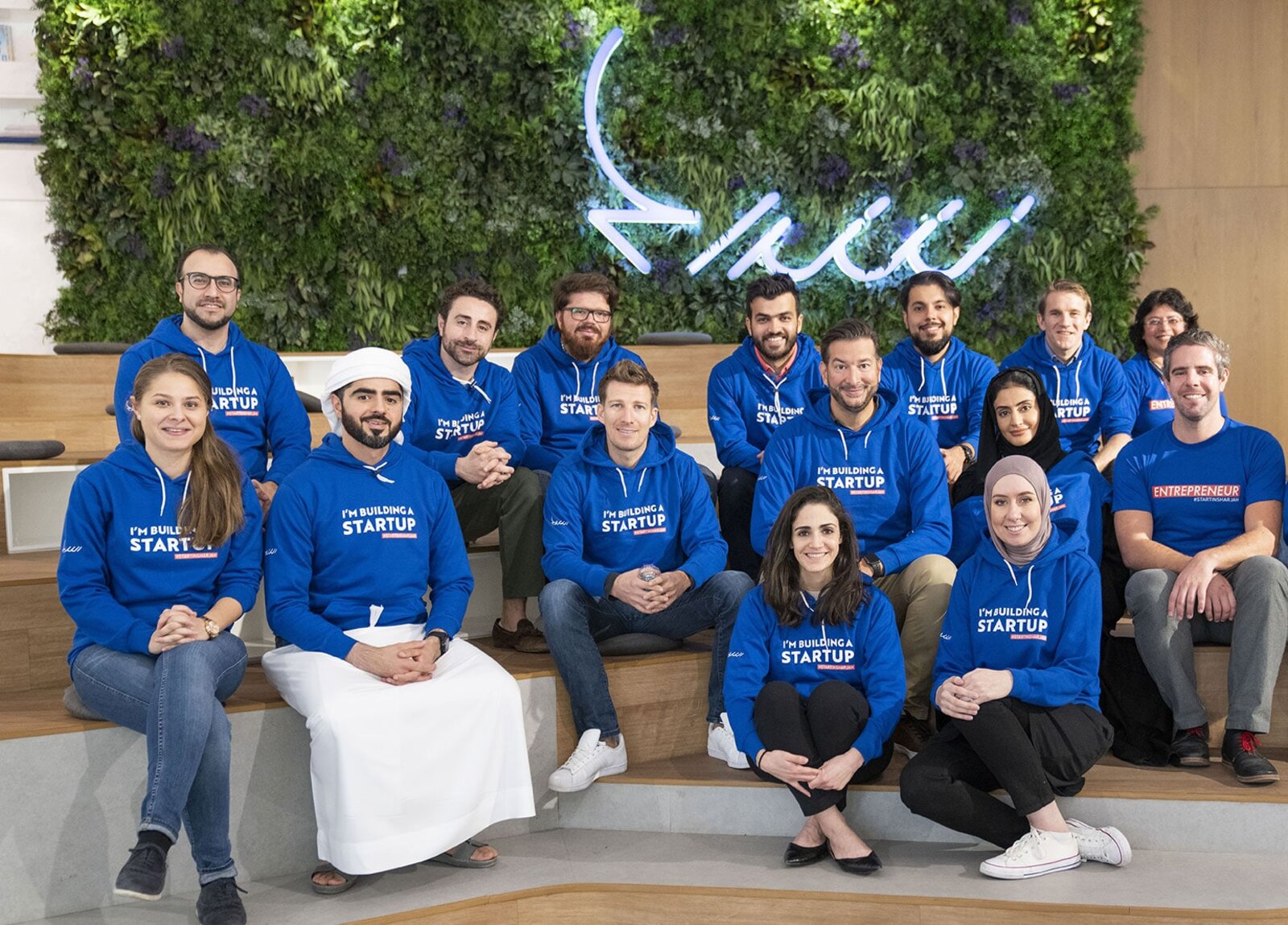
GREEN INVESTMENT-
UAE’s Sheraa launches investment fund for greentech startups: UAE state-backed Sharjah Entrepreneurship Centre (Sheraa) is launching a fund to invest in potential start-ups in a number of sectors, including clean technology and sustainability, the center’s chief executive Najla Al Midfa told The National. The center aims to finance sectors that do not draw enough attention from venture capitalists. “We are here to fill [the] funding gaps …[we are] developing an ecosystem to connect those potential dots that are disruptive but ignored by others,” Al Midfa said, adding that the size of the fund is yet to be determined but will be “big enough to make some reasonable size investment.”
About Sheraa: Sheraa has supported over 160 start-ups in raising a cumulative USD 160 mn in capital and generated over USD 200 mn in revenue by linking them with its corporate partners which include Air Arabia, Crescent Enterprises, Sharjah Media City and Sharjah Research, Technology and Innovation Park. The success rate of Sheraa-incubated start-ups is nearly 70% on average.
Mubadala Capital closes its second Brazil investment fund: UAE’s Mubadala Capital — the USD 20 bn asset management arm of the Mubadala Investments — has secured financial commitments over USD 710 mn for the launch of its second investment fund in Brazil, Wam reports. Mubadala did not specify the sources from which it has raised the capital, but the news agency notes “a leading public pension fund, family offices, corporates, private equity funds, and asset managers across North America, Europe, the Middle East, and Asia” were among the investors. Mubadala Capital plans to invest USD 1 bn annually in Brazil in majority shareholder positions in already mature companies beyond the USD 5 bn it has already channeled toward investments in the country, Bloomberg quotes head of Mubadala Capital in Brazil Oscar Fahlgren as saying. The Abu Dhabi fund last year closed its first investment fund in the country, raising a total of USD 322 mn from a range of international investors.
Mubadala Capital is looking to tap Brazil’s biofuels and SAF: Mubadala signed an agreement with Brazilian state-owned energy giant Petrobras to explore potential partnership in a Mubadala biofuel project under development also in Bahia last month. The firm also plans to acquire a 31.5% stake in Brazilian sugarcane processor Atvos later this year or early next year. Back in April, Mubadala-backed Accelen said it will invest up to USD 2.4 bn over the next 10 years to produce green diesel and sustainable aviation fuel in Brazil from a hydrotreated vegetable oil (HVO), biorefinery in the country’s northeastern state of Bahia, which will have an annual 1 bn liter production capacity once operational in 2026.
CARBON CAPTURE & STORAGE-
KSA joins in Global CCS: Saudi Arabia joined the international think tank Global CCS Institute to help with efforts aimed at advancing carbon capture and storage technology globally, SPA reports. The kingdom is set to work closely with Global CCS on the technology’s capacity building. “Getting ambitious climate projects off the ground will require partnerships and region-specific expertise and knowledge, and being a member of the Global CCS Institute will enhance that further”,” Saudi Energy Minister Prince Abdulaziz bin Salman said.
REMEMBER- The Saudis are planning big on CCS: Saudi Aramco signed an agreement in November to build one of the world’s largest carbon capture and storage hubs with the capacity to store up to 9 mn tons of carbon dioxide a year by 2027. The facility, which will be located in Jubail, will see 44 mn tons of CO2 mitigated annually by 2035.
OTHER STORIES WORTH KNOWING ABOUT THIS MORNING-
- ADIB, DHL team up on sustainable logistics: Abu Dhabi Islamic Bank will sign up to DHL’s sustainability solution GoGreen Plus in a bid to lower emissions associated with their shipments by using sustainable aviation fuel (SAF). (Statement)
AROUND THE WORLD
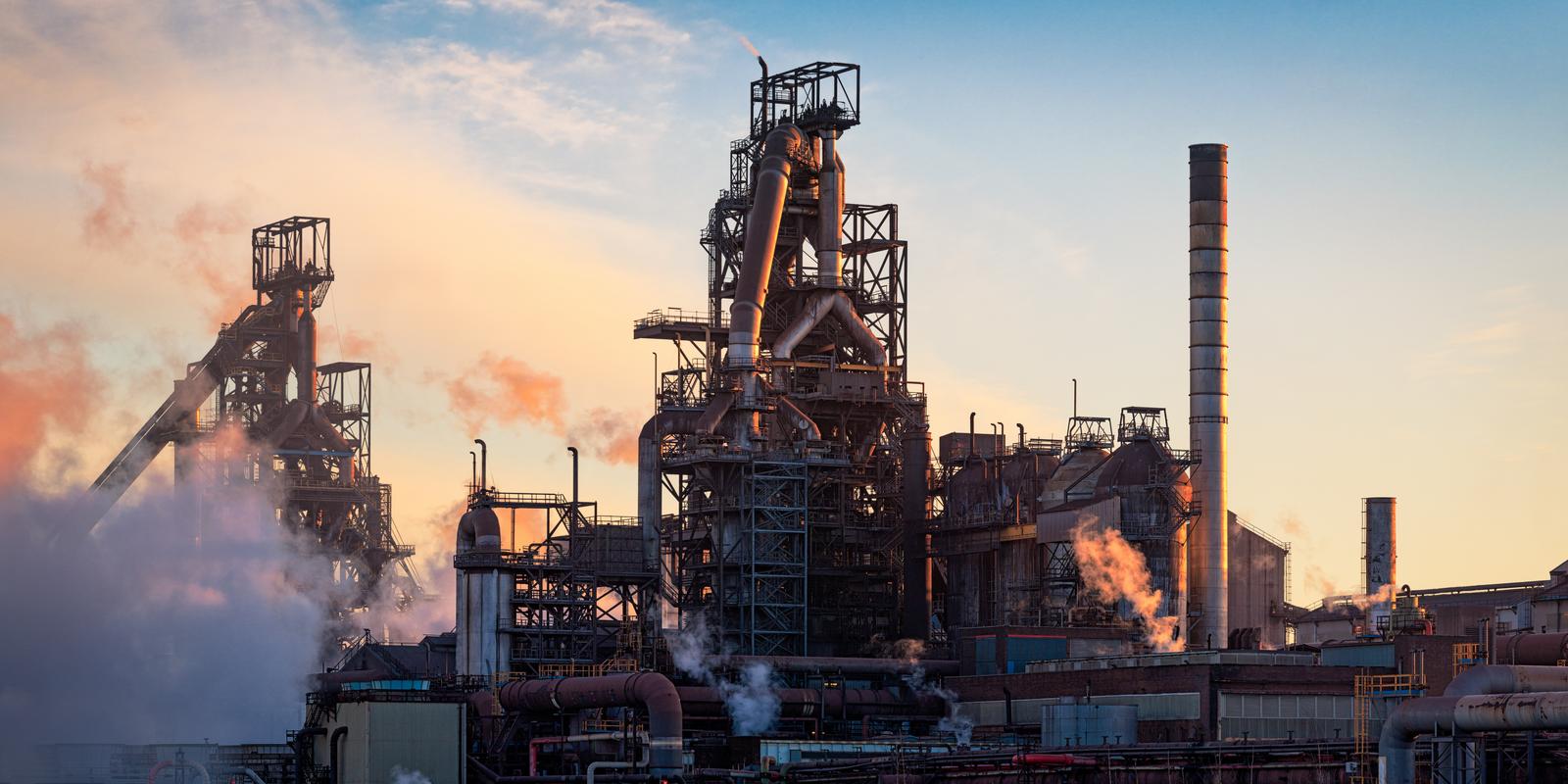
Rina begins construction on its green steel open testing facility: Italian-based engineering research and consulting firm Rina has officially kicked-off its six-year EUR 88 mn Hydra project which aims to build a fully hydrogen-powered green steel plant to be used as an open testing facility for steel makers around the world, according to a statement. The hydrogen-fuelled pilot plant will comprise a 30 meter high direct iron ore reduction (DRI) tower — where metallic iron is produced — an electric arc furnace (EAF), and a reheating furnace that will all operate with near zero emissions for the production of all types of “green steel”. Each ton of manufactured steel produces 0.68 tonnes of CO2 emissions when using an EAF, compared to 2 tons if traditional blast furnaces were used. The open research Hydra project aims to reduce emissions to kgs of CO2 per ton of steel.
How will they do it? The DRI tower will initially run on natural gas, which will gradually be blended with hydrogen in parallel to running quality tests, until the tower can effectively run on 100% hydrogen. The tests will help identify the material and infrastructure needed for the steel industry to use hydrogen in production.
Rina is interested in the region’s potential hydrogen supply: Rina ran a study on a proposed GCC-Europe hydrogen pipeline running from Qatar to Europe via Saudi Arabia, Egypt and the Mediterranean Sea in July. Based on Rina’s calculations, the pipeline could deliver green and blue hydrogen to Europe at a levelized cost of around EUR 2.7 per kg by 2030, later decreasing to EUR 2.3 per kg. Rina also signed an agreement with Acwa Power in September to explore hydrogen’s potential use for sea-borne shipping.
CLIMATE IN THE NEWS
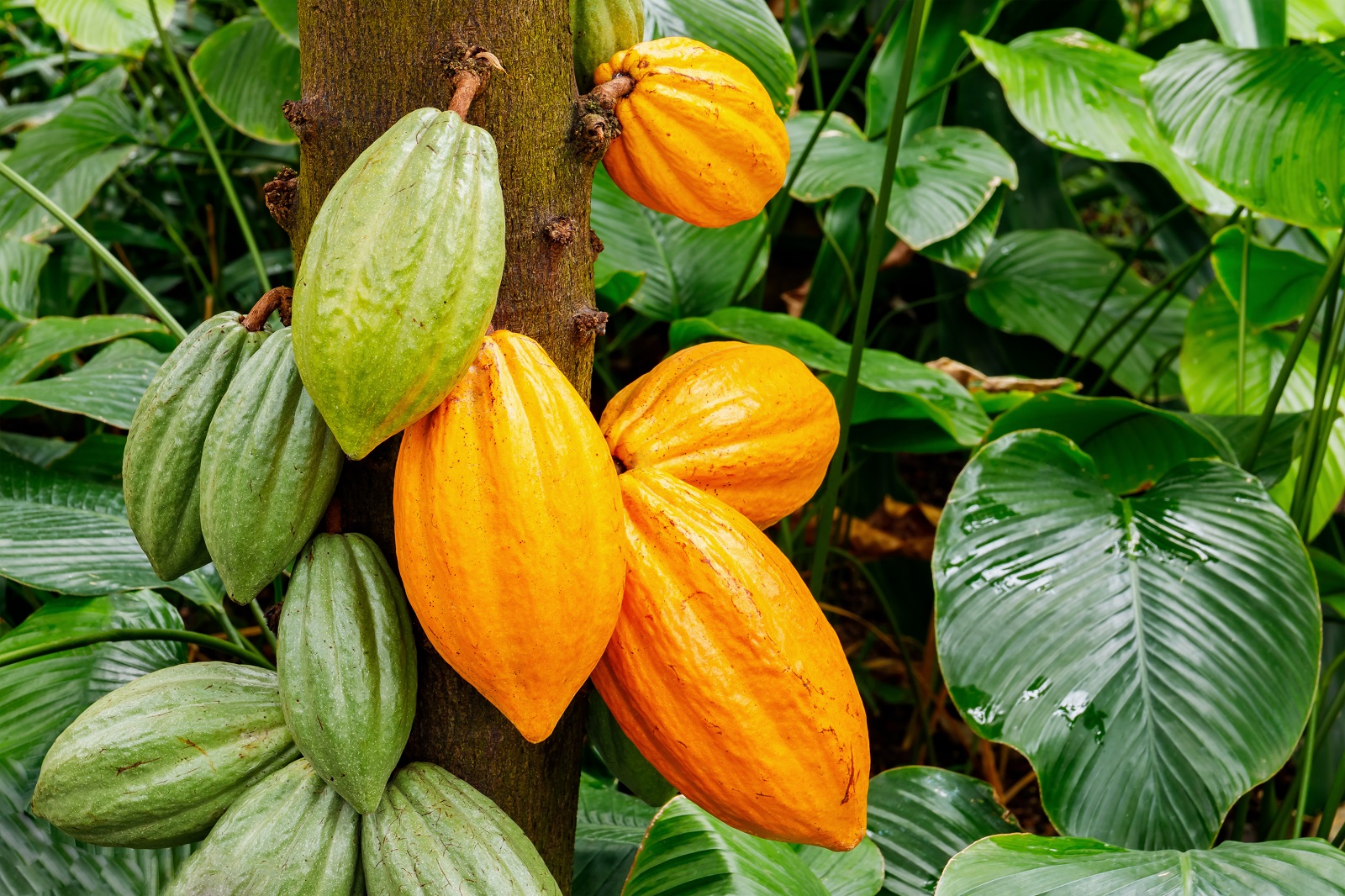
Winter evenings are about to get sad: The scant precipitation levels and dry conditions associated with the El Niño weather phenomenon, coupled with the effects of climate change, threaten the productivity of the world’s major cocoa production centers and will likely drive cocoa producers to seek green pastures in higher altitude regions, CNBC writes. El Niño is expected to last through to March 2024 with a 71% chance of intensification from November to January and the impact climate change is having on agricultural output is already sending cocoa price tags to their highest levels in 50 years.
Driving cocoa farmers to higher altitudes: Rising temperatures and an intensified El Niño cyclical pattern will render cocoa farmlands infertile by 2050 and force farmers to seek out more arable lands uphill, “or some may decide to leave cocoa cultivation altogether,” according to research by the National Oceanic and Atmospheric Administration. The farmland suitable for cacao trees in the world’s largest production regions of Côte d'Ivoire and Ghana is expected to rise uphill to between 450–500 meters above sea level from the current optimal cultivation levels of 100–250 meters, according to the report.
Mitigation efforts will have to be boosted: Climate mitigation efforts will have to triple by 2030 and quadruple by 2050 to mitigate the impact El Niño on cocoa production centers, translating to a cumulative investment of up to USD 8.1 tn by mid-century, Kerry Daroci, the cocoa sector lead at the Rainforest Alliance, told CNBC, citing research by the United Nations Environment Programme.
CALENDAR
OCTOBER 2023
9-15 October (Monday-Sunday): World Bank/IMF 2023 Annual Meetings, Marrakech, Morocco.
16-17 October (Monday-Tuesday): Duqm Economic Forum, Duqm, Oman.
16-18 October (Monday-Wednesday): Climate Week, Rome, Italy.
16-20 October (Monday-Friday): UNCTAD World Investment Forum, Abu Dhabi, UAE.
18-20 October (Wednesday-Friday): Morocco and Belgium business meeting on green hydrogen, Tangiers, Morocco.
17-18 October (Tuesday- Wednesday): Critical Minerals Africa Summit, Cape Town, South Africa.
17-19 October (Tuesday-Thursday): Energy Intelligence Forum, London, UK.
17-20 October (Tuesday-Friday): Fourth meeting of the COP27 Transitional Committee, Aswan, Egypt.
25-26 October (Friday-Saturday): Offshore & Floating Wind Europe 2023, London, United Kingdom.
29 October-2 November (Sunday-Thursday): Cairo Water Week, Cairo, Egypt
29 -31 October (Sunday-Tuesday): Egypt Energy Conference, Egypt International Exhibition Centre, Cairo, Egypt.
30 October – 1 November (Monday-Wednesday) ISWA 2023 World Congress: Global action towards a net-zero future, Muscat, Oman.
31 October-2 November (Tuesday-Thursday): Financial Times’ Energy Transition Summit, London, UK.
31 October-2 November (Tuesday-Thursday): World Hydropower Congress, Bali, Indonesia.
NOVEMBER 2023
1-3 November (Wednesday-Friday): Forbes Middle East Sustainability Leaders Summit 2023, Abu Dhabi, UAE.
7-8 November (Tuesday-Wednesday): ADIA Lab Symposium on Climate Change and Health Sciences, Abu Dhabi, UAE.
7-8 November (Tuesday-Wednesday): The 2023 US Algeria Energy Forum, Washington DC, USA.
9-10 November (Thursday-Friday): International Renewable Energy Agency Investment Forum, Uruguay.
9-15 November (Thursday-Wednesday): Intra-African Trade Fair 2023, Cairo, Egypt.
11-13 November (Saturday-Monday): GCC-Türkiye Economic Forum, Istanbul, Turkey.
15-17 November (Wednesday-Friday): WETEX and Dubai Solar Show, Dubai, UAE.
15-18 November (Wednesday-Saturday): DEWA’s First MENA Solar Conference, Dubai, UAE.
20-24 November (Monday-Friday) International Civil Aviation Organisation’s Aviation and Alternative Fuels conference, Dubai, UAE.
27-30 November (Monday-Thursday) Abu Dhabi Finance Week (ADFW), Abu Dhabi, UAE.
28-29 November (Tuesday-Wednesday): World Green Economy Summit (WGES), Dubai, UAE.
30 November – 12 December (Thursday-Tuesday): Conference of the Parties (COP 28), Dubai, UAE.
DECEMBER 2023
4 December (Monday): Saudi Green Initiative Forum, Dubai, UAE.
4 December (Monday): Abu Dhabi Sustainability Week (ADSW) summit, Dubai, UAE.
8 December (Friday): Youth for Sustainability Forum (Y4S), Dubai, UAE.
12-14 December (Tuesday-Thursday): Green Hydrogen Summit Oman, Oman Convention and Exhibition Center, Muscat, Oman.
18-20 December (Monday-Wednesday): Saudi Arabia Smart Grid Conference, Hilton Riyadh Hotel & Residences, Riyadh, Saudi Arabia.
JANUARY 2024
9-11 January (Tuesday-Thursday): Future Minerals Forum, Riyadh, Saudi Arabia.
FEBRUARY 2024
26-28 February (Monday-Wednesday): Management and Sustainability of Water Resources, Dubai, UAE.
MARCH 2024
4-6 March (Monday-Wednesday): International Conference on Sand and Dust Storms in the Arabian Peninsula, Riyadh, Saudi Arabia.
APRIL 2024
16-18 April (Tuesday-Thursday): World Future Energy Summit, Abu Dhabi, UAE.
23-25 April (Tuesday-Thursday): Connecting Green Hydrogen MENA, Dubai, UAE.
MAY 2024
19-21 May (Sunday-Tuesday): Saudi Energy Convention, Riyadh, KSA.
JUNE 2024
5 June (Wednesday): World Environment Day, Saudi Arabia.
OCTOBER 2024
10-12 October (Tuesday-Thursday): Autonomous E-Mobility Forum, Doha, Qatar.
DECEMBER 2024
2-13 December (Monday-Friday): Conference of the Parties (COP16) to the United Nation Convention to Combat Desertification, Riyadh, KSA.
EVENTS WITH NO SET DATE
2023
Mid-2023: Oman set to sign contracts for green hydrogen projects.
Mid-2023: Sale of Sembcorp Energy India Limited to consortium of Omani investors to close.
Phase C of the 900-MW of the Mohammed bin Rashid Al Maktoum Solar Park in Dubai to be completed.
Saudi Basic Industries Corporation (Sabic) steam cracker furnace powered by renewable energy to come online.
2024
12-14 February (Monday-Wednesday): Sustainable Aviation Futures MENA Congress, Dubai, UAE.
End-2024: Emirati Masdar’s 500 MW wind farm in Uzbekistan to begin commercial operations.
QatarEnergy’s industrial cities solar power project will start electricity production.
2025
International Union for Conservation of Nature World Conservation Congress, Abu Dhabi, UAE.
UAE to have over 1k EV charging stations installed.
2026
UITP Global Public Transport Summit, Dubai, UAE.
1Q 2026: QatarEnergy’s USD 1 bn blue ammonia plant to be completed.
End-2026: HSBC Bahrain to eliminate single-use PVC plastic cards.
2027
MENA’s district cooling market is expected to reach USD 15 bn.
2030
UAE’s Abu Dhabi Commercial Bank (ADCB) wants to provide AED 35 bn in green financing.
UAE targets 14 GW in clean energy capacity.
Tunisia targets 30% of renewables in its energy mix.
Qatar wants to generate USD 17 bn from its circular economy, creating 9k-19k jobs.
Morocco’s Xlinks solar and wind energy project to generate 10.5 GW of energy.
2035
Qatar to capture up to 11 mn tons of CO2 annually.
2045
Qatar’s Public Works Authority’s (Ashghal) USD 1.5 bn sewage treatment facility to reach 600k cm/d capacity.
2050
Tunisia’s carbon neutrality target.
2060
Nigeria aims to achieve its net-zero emissions target.
Enterprise Climate is available without charge thanks to the generous support of HSBC (tax ID: 204-901-715), the leading corporate and retail lender in Egypt; and Infinity Power (tax ID: 305-170-682), the leading generator and distributor of renewable energy in Africa and the Middle East. Enterprise Climate is delivered Mon-Thurs before 4 am UAE time. Were you forwarded this copy? Sign up for your own delivery at climate.enterprise.press. Contact us on climate@enterprisemea.com.


